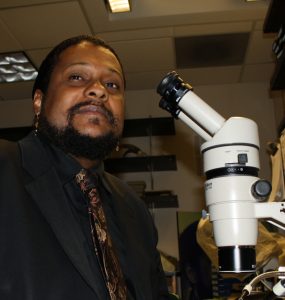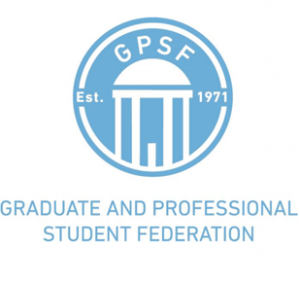40th Minority Health Conference Archive
40th Annual Minority Health Conference
Advocacy for Change
Friday, February 22, 2019
William and Ida Friday Center, Chapel Hill
Advocacy is an integral aspect of social change. This year’s theme, Advocacy for Change: Celebrating Past Successes and Planning for the Future, honors how advocacy efforts are instrumental in advancing the health of minorities. For our 40th year, we honor past activist successes and set the stage for communities to continue their work as advocates or as changemakers.
Public health is an active and integral actor in these movements for social change. As a field, public health must intentionally shed light on disparities that persist due to structural and social inequalities and provide pathways to promote better health for all. This year, we have curated a forum that sets the stage for more effective and engaging advocacy efforts in our communities, far and near.
Connect
Make sure to get the latest updates by following us on social media, and joining our mailing list to stay up to date on all the latest conference news and announcements!
Learn More
If you are a member of the media, pre-registration is required to cover the event due to capacity limits. Please register by 5:00 p.m. on Thursday, February 21 by emailing minorityhealthconference@unc.edu with “Press Registration Request” in the subject.
40th Annual Minority Health Conference Schedule
February 22, 2019
*schedule subject to change
| 7:30 – 9:00 am | Check-in |
| 9:00 – 9:30 am | Welcoming Remarks |
| 9:30 – 10:45 am | Introduction and William Small Jr. Keynote, Linda Sarsour |
| 10:45 – 11:15 am | Exhibitors/Posters {Break} |
| 11:15 am – 12:15 pm | Morning Breakout Sessions |
| 12:15 – 1:15 pm | Lunch |
| 1:15 – 1:45 pm | Exhibitors/Posters {Networking} |
| 1:45 – 3:00 pm | Introduction and Victor Schoenbauch Keynote, Dr. Tyrone Hayes |
| 3:00 – 3:30 pm | Exhibitors/Posters {Break} |
| 3:30 – 4:30 pm | Afternoon Breakout Sessions |
| 4:30 – 5:00 pm | Closing Remarks and Cake |
Keynote Speakers
21st Annual William T. Small, Jr. Keynote Lecture: Linda Sarsour

Linda Sarsour is an award-winning racial justice and civil rights activist, seasoned community organizer and mother of three. Ambitious, outspoken and independent, Linda shatters stereotypes of Muslim women while also treasuring her religious and ethnic heritage. She is a Palestinian Muslim American and a self-proclaimed “pure New Yorker, born and raised in Brooklyn!” She is the former Executive Director of the Arab American Association of New York and co-founder of the first Muslim online organizing platform, MPOWER Change. Linda has been at the forefront of major civil rights campaigns including calling for an end to unwarranted surveillance of New York’s Muslim communities and ending police policies like stop and frisk. In wake of the police murder of Mike Brown, she co-founded Muslims for Ferguson to build solidarity amongst American Muslim communities and encourage work against police brutality. She is a member of the Justice League NYC, a leading NYC force of activists, formerly incarcerated individuals, and artists working to reform the New York Police Department and the criminal justice system.
Linda co-chaired the March2Justice, a 250-mile journey on foot to deliver a justice package to end racial profiling, demilitarize police and demand the government invest in young people and communities. Linda Sarsour was instrumental in the Coalition for Muslim School Holidays to push New York City to incorporate 2 Muslim high holy holidays in to the NYC Public school calendar. New York City is now the largest school system in the country to officially recognize these holidays. Linda is also a Senior Fellow at Auburn Seminary along leading social justice faith leaders. Most recently, she was the National Co-Chair of the Women’s March on Washington, dubbed the largest single day protest in US history.
She has received numerous awards and honors including “Champion of Change” by the White House, YWCA USA’s Women of Distinction Award for Advocacy and Civic Engagement, the Hala Maksoud Leadership Award from the American Arab Anti-Discrimination Committee, 2017 Webby Awards, the Andrew Young Foundation’s Annual International Leaders Award, the Shirley Chisholm Award by the New York City Council and recognized by the NAACP New York State Conference amongst others. Sarsour was named among 500 of the most influential Muslims in the world, 50 of the world’s greatest leaders by Fortune Magazine and featured on the Time 100’s list of the world’s most influential people. Linda was profiled on the front page of the New York Times Metro Section and dubbed “Brooklyn Homegirl in a Hijab” and they introduced Linda to their readership as “Mixing street smarts, activism and her Muslim identity, Linda Sarsour has become a political force.” She has written for and has been featured in local, national, and international media discussing impact of domestic policies that target Arab and Muslim American communities, criminal justice issues and Middle East affairs. Linda is well respected amongst diverse communities in both in New York City and nationally. She is most known for her intersectional coalition work and building bridges across issues, racial, ethnic and faith communities.
8th Annual Victor J. Schoenbach Keynote Lecture: Tyrone B. Hayes PhD – Professor of Integrative Biology, Museum of Verterbrate Zoology, Endocrinology, Molecular Toxicology, and the Energy and Resources Group

Tyrone B. Hayes was born and raised in Columbia, South Carolina where he developed his love for biology. He received his Bachelor’s degree from Harvard University in 1989 and his PhD from the Department of Integrative Biology at the University of California, Berkeley in 1993. After completing his PhD, he began post-doctoral training at the National Institute of Child Health and Human Development, National Institutes of Health and the Cancer Research Laboratories at UC Berkeley (funded by the National Science Foundation), but this training was truncated when he was hired as an Assistant Professor at UC Berkeley in 1994. He was promoted to Associate Professor with tenure in 2000 and to full Professor in 2003.
Hayes’ research focuses on developmental endocrinology with an emphasis on evolution and environmental regulation of growth and development. For the last twenty years, the role of endocrine disrupting contaminants, particularly pesticides, has been a major focus. Hayes is interested in the impact of chemical contaminants on environmental health and public health, with a specific interest in the role of pesticides in global amphibian declines and environmental justice concerns associated with targeted exposure of racial and ethnic minorities to endocrine disruptors and the role that exposure plays in health care disparities.
Linda Sarsour
It’s been near three decades since Dr. Kimberle Crenshaw coined the term “intersectionality”. She saw the deficiencies in the ways in which we fight for justice and against oppression across multiple identities. Intersectionality requires that we bring a holistic approach to social justice work – that we treat people as whole human beings impacted by a multitude of issues.
Can we learn from past mistakes of siloed movements? How do we fight for our bodies, selves, families and communities? How do we organize movements based on the understanding that unity is not uniformity? This lecture will be grounded in the words of Audre Lorde, “There is no such thing as a single-issue struggle because we do not live single-issue lives.” We will explore challenges of the past and put forth solutions for the future to build a movement that leaves no one behind.
Tyrone B.Hayes, PhD
The focus of my research program is to understand the impact of pesticides on both environmental health and public health. Environmental health is a critical indicator of overall health, particularly for low-income and ethnic minorities. People in these communities are more likely to live in contaminated areas, work in occupations with increased exposure to persistent toxins, and are less likely to have educational and healthcare access. Industries benefiting from the development of pesticides attempt to discredit scientists who study their effects.
Advocacy comes in all forms and shapes. Researchers have the obligation to act when findings from their research shed light on injustices. As the scientific knowledge of the impact of pesticides continues to grow, government agencies are beginning to incorporate these emergent findings into health-protective policies. There is a strong need to translate and provide public access to environmental science because this knowledge can empower communities to take effective social and political action. To do so requires command of the science and active involvement by the public in policy decisions. We will discuss personal story of how scientific discovery can lead to advocacy and how to respond to barriers in environmental justice activism.

Celebrating the 40th Anniversary of the Minority Health Conference:
Advocacy for Change
The UNC-Chapel Hill Gillings School of Global Public Health’s Minority Health Conference, the largest and longest-running student-led health conference in the country, aims to raise awareness around minority health and mobilize students, academics, and community members to take action for change. Established in 1977 by the Minority Student Caucus, the conference is nationally recognized and respected, attracting more than 600 attendees each year and hundreds more who view it via webcast.
We are excited to announce that this year’s theme is Advocacy for Change: Celebrating Past Successes and Planning for the Future.
What connects civil rights gains, women’s suffrage, marriage equality and the rise of progressive candidates? The answer is timing and advocacy – persistent advocates taking on the opposition and strategically responding to the greatest challenges of our time.
Advocacy is an integral aspect of social change. This year’s conference theme celebrates how advocacy efforts are instrumental in advancing the health of minorities and people of color. The theme honors activist history and provides a forum through which communities can engage with advocacy efforts moving forward.
Public health is the connecting thread in these movements for social change. We make an impact by showing that well-being is indicative of social determinants related to gender, race and ethnicity, wealth and class.
At the Gillings School of Global Public Health, we lead from the inside out. Forty years ago, the Minority Health Conference began as the result of advocacy. The Minority Student Caucus sought to highlight the health issues of all people of color. They organized their ideas, outlined their intentions, and described the changes they wanted to see in the world.
Nearly every year since 1977, we have convened thousands of community members, professionals and students to explore a diverse range of topics that have an impact on minority health. Together, we connect multidisciplinary champions working at the local, regional, national and global levels – and inform communities everywhere.
Today’s political landscape presents the opportunity – and indeed, the demand – for strategic and expert dialogue about the needs of minority communities. This anniversary gathering will center around advocacy and movement building. The conference will provide attendees with information, skills and tools that can empower them to become advocates for causes that they are passionate about.
We look forward to seeing you at the conference on Friday, February 22, 2019, at the William and Ida Friday Center in Chapel Hill, North Carolina!
Sincerely,
The Minority Health Conference co-chairs
Learn more about sponsorship opportunities.
As of February 14th, 2019, our sponsors were, a complete list can be found in our day of program.
Old Well Sponsors ($10,000 or more)
Bell Tower Sponsors ($5,000 – $9,999)
Carolina Sponsors ($2,000 – $4,999)
Tarheel Sponsors ($500 – $1,999)
Beghou Consulting
Cynthia Butler
Kauline Cipriani, PhD
Kristin Z. Black, PhD*
Robert D. Reasenberg, PhD and Wendy S. Reasenberg in honor of Dr. Victor J. Schoenbach
Truth Initiative
UNC Athletics
UNC Center for Health Promotion and Disease Prevention
UNC College of Arts & Sciences
UNC Lineberger Comprehensive Cancer Center
UNC Health Equity Research
UNC School of Education
UNC School of Medicine
Office of Inclusive Excellence in the School of Medicine
Victor J. Schoenbach, PhD and Marion E. Schoenbach in honor of Bernice Green Otudeko and Edward Ellis
UNC Gillings School, Office of Student Affairs
UNC School of Medicine, Office of Research
As we celebrate the 40th Anniversary of the Minority Health Conference, we are honored and grateful to have received support from our past Co-Chairs, indicated with an asterisk above.
Gillings School Statement on Keynote Speaker Selected for the Minority Health Conference
The Minority Health Conference is the largest and longest running student-led health conference in the country. The conference celebrates its 40th anniversary this year with the timely theme, “Advocacy and Change: Celebrating Past Success and Planning for the Future.” The theme honors activism that fosters social change, leading to increased equity for all. In that spirit, the student chairs and organizers of the event have invited keynote speakers who represent different approaches to advocacy. Linda Sarsour was invited to speak on her perspective as both a grass-roots organizer and leader of high-profile events, such as co-chairing the national Women’s March. Our students seek to foster an exchange of ideas on important topics.
The views and remarks of the speakers do not necessarily reflect those of the Gillings School of Global Public Health or the University. The invitation by the conference organizing committee is not an endorsement of this or any other speaker’s position. The Gillings School condemns all forms of bias, discrimination and hatred, and, as is outlined in our Diversity Statement, we are committed to ensuring that the School is a diverse, inclusive, civil and welcoming community.
The Gillings School empowers and supports the student leaders to invite and sponsor the speakers who best fit conference goals. Providing a free speech forum for a range of ideas is part of our commitment to inclusion. All sponsored speaking engagements at the University fall under the protection of free speech laws and policies. The University is governed by the U.S. Constitution’s First Amendment, the North Carolina Restore Free Speech Act, enacted by the General Assembly in 2017, and the campus Facilities Use Policy, originally established in the 1960s and regularly updated.
More information on UNC’s compliance with the free exchange of ideas can be found here.
More information on the Minority Health Conference can be found here.







